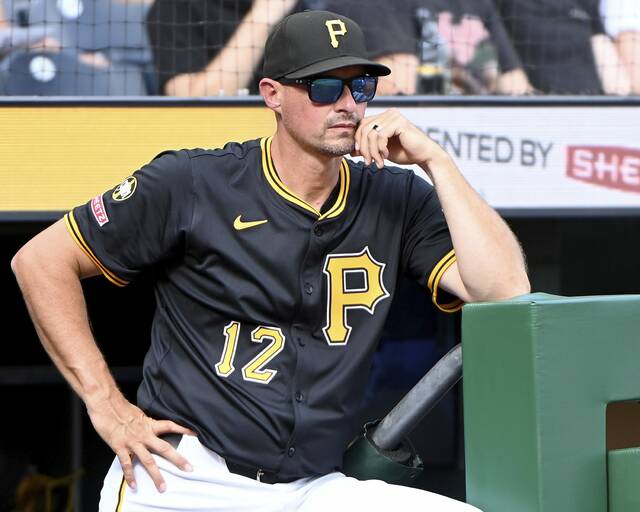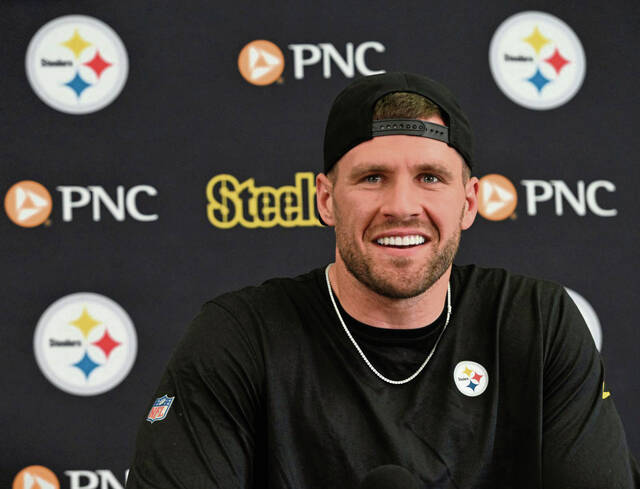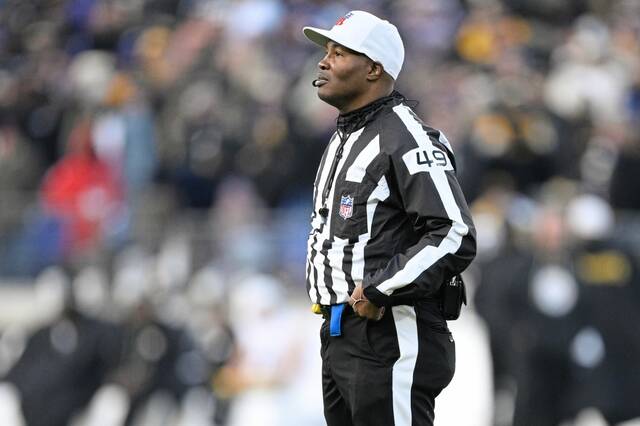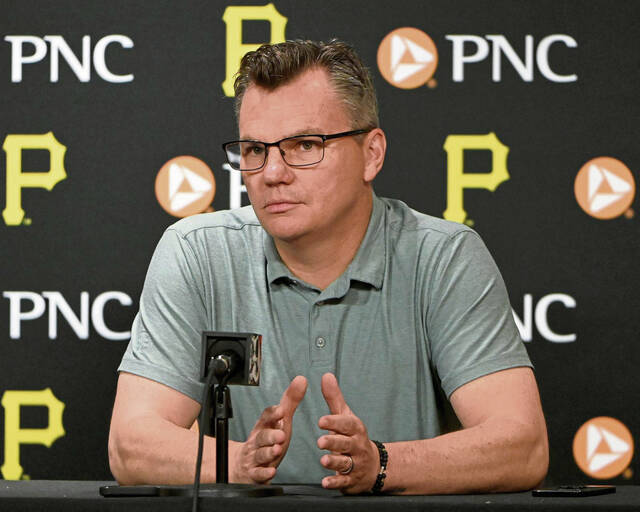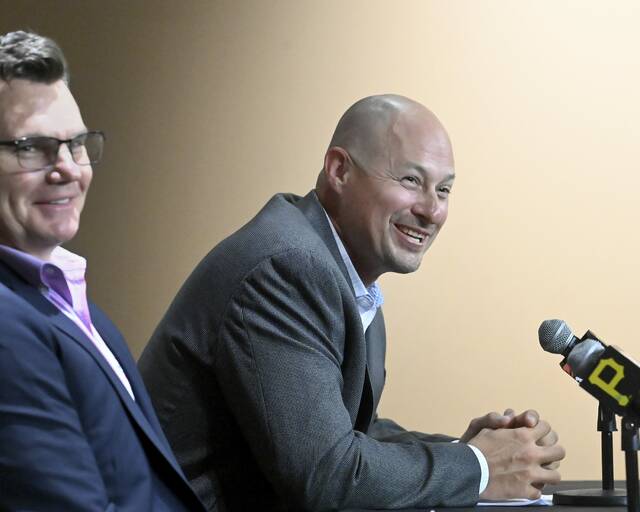The leadoff hitter and Gold Glove center fielder for the Pittsburgh Pirates’ 1960 World Series champions who became a major-league manager of four teams, Bill Virdon was a baseball lifer known as a quiet but brilliant strategist and intense outfield instructor.
Virdon, dubbed “Quail” by broadcaster Bob Prince for his penchant for beating out infield hits, died Tuesday morning at age 90. Virdon is survived by his wife of 70 years, Shirley; daughters Debbie Virdon Lutes, Linda Virdon Holmes and Lisa Virdon Brown; along with seven grandchildren and 13 great-grandchildren.
“Bill Virdon was a man who took such great pride in being a member of the Pittsburgh Pirates family,” Pirates chairman Bob Nutting said in a statement. “Every fan who followed our 1960 team will always remember the instrumental role that he played to bring a third World Series championship to the city of Pittsburgh.
“We are also eternally grateful for everything that Bill did representing the Pirates following his playing days not only as a successful manager, but also in helping a countless number of our young players that he so proudly instructed and mentored as a coach and one of our longtime spring training guest instructors.”
Virdon finished with 1,596 hits, a career .267 batting average, 237 doubles, 81 triples, 91 home runs and 502 RBIs in 12 seasons, including the final 11 with the Pirates.
A native of Hazel Park, Mich., Virdon moved to West Plains, Mo., at the age of 12 and is hailed as a hero in the Ozarks. He signed with the New York Yankees and spent four seasons in their minor-league system but was stuck behind Mickey Mantle in center field. The Yankees traded Virdon to the St. Louis Cardinals, along with Mel Wright and Emil Tellinger, for Enos Slaughter.
The Cardinals moved Stan Musial from center field to first base to make room for Virdon, who batted .281 with 17 home runs and 68 RBIs to win 1955 NL Rookie of the Year honors. After Virdon slumped to start the next season, however, Cardinals general manager Frank Lane traded him to the Pirates for Bobby Del Greco and Dick Littlefield. Lane came to regret the deal, later calling it the worst trade he’d ever made.
Virdon batted .334 over the final 133 games to finish with a .319 batting average, finishing second to Hank Aaron for the 1956 NL batting title. Virdon never hit for that high for average again but established himself as one of the game’s premier defensive center fielders with elite speed and a strong, accurate arm. He led National League center fielders in assists (16) and double plays (five) in 1959 and earned a Gold Glove in 1962 (when he also led the NL with 10 triples).
Virdon is best known for his Game 7 grounder in the 1960 World Series that took a bad hop and hit Yankees shortstop Tony Kubek in the throat in the bottom of the eighth inning. Virdon reached safely, then scored on Roberto Clemente’s two-out infield single. Hal Smith followed with a three-run homer to give the Pirates a 9-7 lead, setting the stage for Bill Mazeroski’s walk-off homer to win the world championship.
In the 1960 World Series, however, Virdon also showed off his speed and glove with a pair of catches that prevented two-run doubles. The first came in the fourth inning of Game 1, when he robbed Yogi Berra in deep center to preserve a 6-4 win. The second came in the seventh inning of Game 4, when Virdon made an acrobatic catch on a Bob Cerv drive to deep right-center to protect a 3-2 win that evened the series.
“That saved the game for us,” said Pirates reliever ElRoy Face, who was on the mound. “I really appreciated him. He was just a good ballplayer. I’d just as soon have him in center field as anybody.”
With a desire to become a manager, Virdon retired after the 1965 season. He returned briefly as a player-coach in 1968, playing six games, then succeeded Danny Murtaugh as manager in 1972. The Pirates won 96 games to clinch the NL East but lost to the Cincinnati Reds in the NLCS on a Bob Moose wild pitch.
Clemente was killed in a plane crash on New Year’s Eve. After going 19-8 and finishing second in Cy Young voting in ’72, right-hander Steve Blass lost control and went 3-9 with a 9.85 ERA the following year. The Pirates slipped to 67-69 when Virdon was fired by general manager Joe L. Brown in September.
“He was the manager. He was the boss when I was playing. I always respected authority, and Bill Virdon represented authority, I’ll tell you that,” said Blass, who became good friends with Virdon.
“In the realm of professional baseball, I don’t think there’s anybody who doesn’t respect Bill Virdon — and that’s rare. He’s one of the most decent human beings I’ve ever run across, just a thoroughly decent person. He didn’t compromise his principles, had everybody’s respect and I just thought the world of him.
“When Bill managed us in 1972, I won 19 games for him. There was nobody worse than I was the next year, in 1973. Bill Virdon was the same guy when I couldn’t do anything as he was when I was winning 19 games for him. That told me all I had to know about Bill Virdon.”
Virdon was so principled that when he managed the Houston Astros to their first playoff berth by winning the 1980 NL West division title, they celebrated by dousing him with milk instead of the customary champagne shower. Virdon won manager of the year honors that season, as he had when he was a late hire by the Yankees in 1974 after their attempt to hire Dick Williams from the A’s was foiled. Virdon also is the winningest manager in Astros history, going 544-522 (.510) in eight seasons.
Virdon finished with a 995-921 record as a major-league manager with the Pirates, Yankees, Astros and Montreal Expos.
He joined Jim Leyland’s staff in 1986 at the suggestion of Brown and Syd Thrift. Leyland and Virdon spoke at the winter meetings to discuss the role. Virdon started as bench coach and later became hitting coach.
“The rest was history. We became best friends,” Leyland said. “He was so good for me, particularly that first year. He was such a professional. He’d let me do my thing, then suggest things once in a while.”
“He was a real strict disciplinarian, hard-nosed guy. His personality with us was a personality most people never saw. He laughed and had fun. He had so much of a more mellow personality than the average guy would have thought, including me.”
Leyland laughed in recounting one of his favorite Virdon stories from their first spring training together. As a minor league manager, Leyland was accustomed to having a shorter bench compared to the extended rosters in Grapefruit League games. When Leyland lamented that he would have liked to use a pinch runner, Virdon nudged him.
“He said, ‘Jim, you’ve got 60 players sitting here on the bench. Go ahead,’” Leyland said. “He’d talk baseball to us, kind of teach us, with suggestions and ideas and stories. It was some of the greatest memories of my career. I’m going to miss him terribly.”
Those stories included tales about the toughest pitcher Virdon had ever faced (Dodgers lefty Sandy Koufax) and how impressed he was with the way Pirates shortstop Dick Groat — Virdon’s road roommate — could handle a bat and never missed on a hit-and-run.
Virdon shared his baseball knowledge with Pirates players for generations as a special instructor at spring training, working on fielding drills with outfielders. Leyland credits Virdon for helping develop Pirates outfielders Barry Bonds, Bobby Bonilla and Andy Van Slyke into All-Stars in the 1990s, with Van Slyke earning five consecutive Gold Gloves with the Pirates and Bonds winning the first three of his eight.
“He was huge,” Leyland said. “In fact, the first guy I texted this morning was Barry Bonds to tell him our good friend Bill Virdon passed away. Not two minutes later, my phone rang. It was Barry. He wanted Shirley’s number. He said there was never a better outfield instructor than him. Barry responded that fast, so you know what Barry thought of him.”
Blass reminisced about watching Virdon taking Pirates outfielders into the grass with his fungo bat. Onlookers marveled at Virdon’s fit physique and his commitment to fundamentals, even in his 80s.
“He was a wizard with the fungo bat,” Blass said. “He would work those guys hard, and they respected that. As a result, they were better outfielders because of them. He knew what to do to get the maximum effect. He also realized the more you do the repetitions of doing the right things it locks in. You don’t have to think about them because of the consistency of the repetition.
“We were lucky to have him. I’m so glad I crossed paths with him. Pittsburgh got lucky with Bill Virdon.”
He is survived by his wife Shirley, three daughters, seven grandchildren and 13 great-grandchildren
Visitation will be held on Tuesday morning at 9:30 at Kings Way United Methodist Church in Springfield, Mo. A funeral service will take place at noon.



